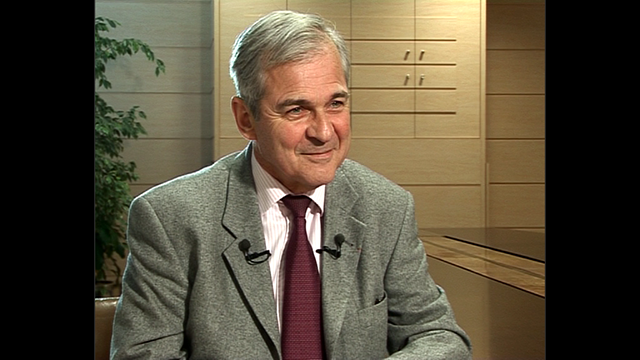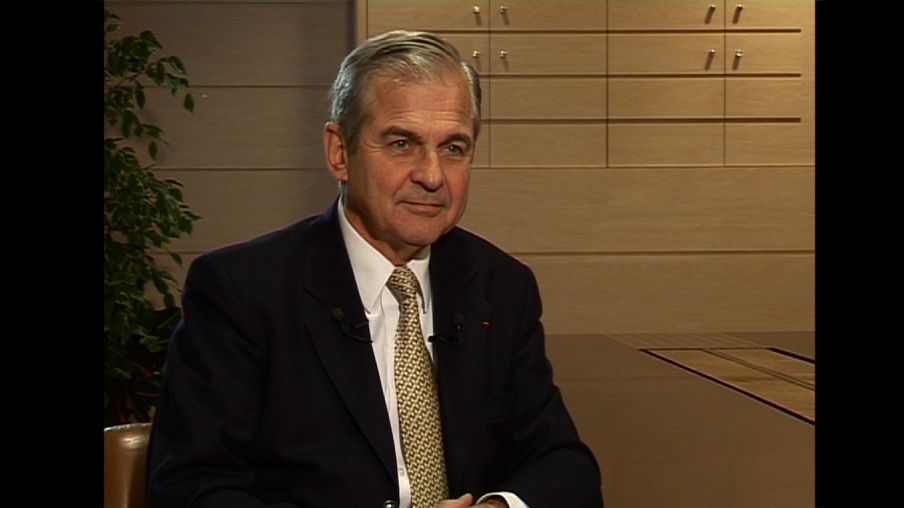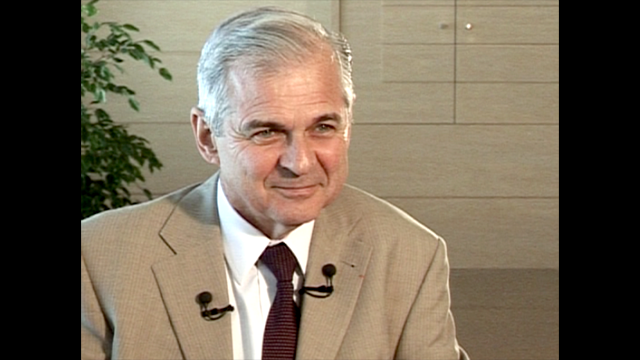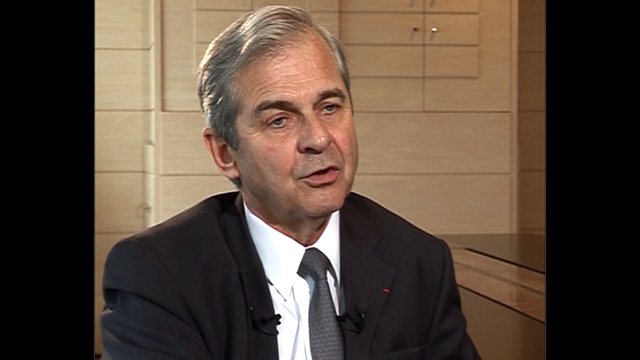EuroBusiness Media (EBM) : Technip, Europe's leading oil services company, has just reported full year profit for 2005. Daniel Valot, welcome. You are the chairman and CEO of Technip. What are your comments on Technip's performance in 2005 given that you recently announced that you would miss your full-year EBIT and net profit guidance targets?
Daniel Valot (DV) : Yes, that's true, we made a press release last week explaining that, because of the late instruction of a claim on a specific contract, we had to make a last minute adjustment to our accounts, so unfortunately we have not been able to increase those numbers compared to last year. Nevertheless, we are slightly above last year, both in terms of operating income and net income per share, so it's not the end of the world. It was bad news, of course, for everybody including our shareholders and ourselves. Nevertheless, the numbers we had last year were looked at as good, and they are as good this year, but not better.
EBM : What is the outlook for new orders in 2006? Do you confirm that business will presumably not pick up again until the second half of the year?
DV : No, we have several contracts that will come into force during the first half. The first of these being Qatargas 3 and 4, which is a large piece of business for us. It's 1.6 billion dollars which came into force in January. The other is the conversion of the Kursaniya contract in Saudi Arabia from service contract to lump-sum turnkey. That will bring also a big chunk of backlog to us during the first half. So I would expect the first half backlog to be at more or less the same level as last year, which means a number of new contracts entering anyway in our backlog, and probably additional progress in the backlog during the second half of the year.
EBM : What is your guidance for 2006?
DV : In terms of earnings we believe we can reach more than 5% operating margin on overall sales of about 6.8 billion euros, based on a euro being equal to 1.25 dollars on average during the year.
EBM : Some analysts believe that the investment cycle in your industry has changed radically and that the new investment cycle is now much longer than it used to be. Is this true, and if so, how come?
DV : We will know if it's true in three or four years from now, if we are still on this upward trend. My feeling is that it will last for many years -- at least four of five years -- because there is such a deficit in capacities, both in production capacities, refining capacities, special chemical capacities, that there will be many years of large capital spending before we can achieve a better balance between supply and demand.
EBM : How would you describe your pricing environment given what you've told us about the new nature of the investment cycle?
DV : Obviously in this kind of situation in which there are more projects than what the engineering industry can swallow, the pricing environment is much better than it used to be a few years ago.
EBM : Analysts believe that you must now be at full capacity given the high record level of the backlog. Are you physically able to take on more contracts should you even win them?
DV : We are physically able to take on more contracts provided that they are larger contracts than in the past. We are able to take much bigger contracts than before, at the expense of not taking on small contracts. A large contract employs comparatively fewer people than a collection of small contracts. So we are still able to take on more contracts than we have today.
EBM : Growth in some offshore areas will require new vessels, but there is the sense that Technip has been lagging competitors in making investments in new offshore construction equipment. What is your investment strategy concerning new vessels and capacity?
DV : We are increasing our capital spending budget this year by about 50% compared to our capital budget over the past four or five years. We are making a big effort. We are in the process of building a new vessel, a new DSV and medium construction vessel, which will be a brand new one. We are also in the process of expanding the capacity of our plants ; we are expanding the capacity of our plant in Brazil by 50% and our plant in France by about 20%. So we are taking every possible step to push our capacities up to the level of the expected demand for the coming years.
EBM : Is it fair to say that you are now so busy with oil work that industry diversification is no longer the priority that it was just one year ago?
DV : When I talked about it one year ago I said it was a priority for the next four or five years. I didn't say it would be a big move which would be done tomorrow morning, so the situation remains the same. But it is true that today we are pretty busy with all the oil and gas contracts that we are executing, and that the attention of management should not be distracted by anything else big. So in a sense yes, we still target big expansion in our industry division, but we would not go into the difficult process of a large acquisition now.
EBM : You have lots of cash at your disposal. What are you going to do with all that cash?
DV : The first thing is that we are thinking about our shareholders for whom the dividend has been flat for the last five years. We will propose to the shareholders' meeting an increase in the dividend per share. We have to face increased capital spending. And we will probably continue, as we have always done, to buy back shares on the market in order to move towards a zero dilution situation, in spite of the stock option programmes and employee shareholder programmes.
EBM : What are your comments on your decision to call in your convertible bonds?
DV : We decided to do it just because, as we mentioned before, we have plenty of cash so we have the opportunity to pay back those convertibles if they are not converted into equity. Secondly, it will save the company a lot of financial charges. The cost of those bonds in our accounts is about 35 million euros per year. This is a big amount which will disappear, leading to a marked improvement in our earnings in 2006, which is good for the company and for its shareholders.
EBM : Daniel Valot, chairman and CEO of Technip, thank you very much.
DV : Thank you.





